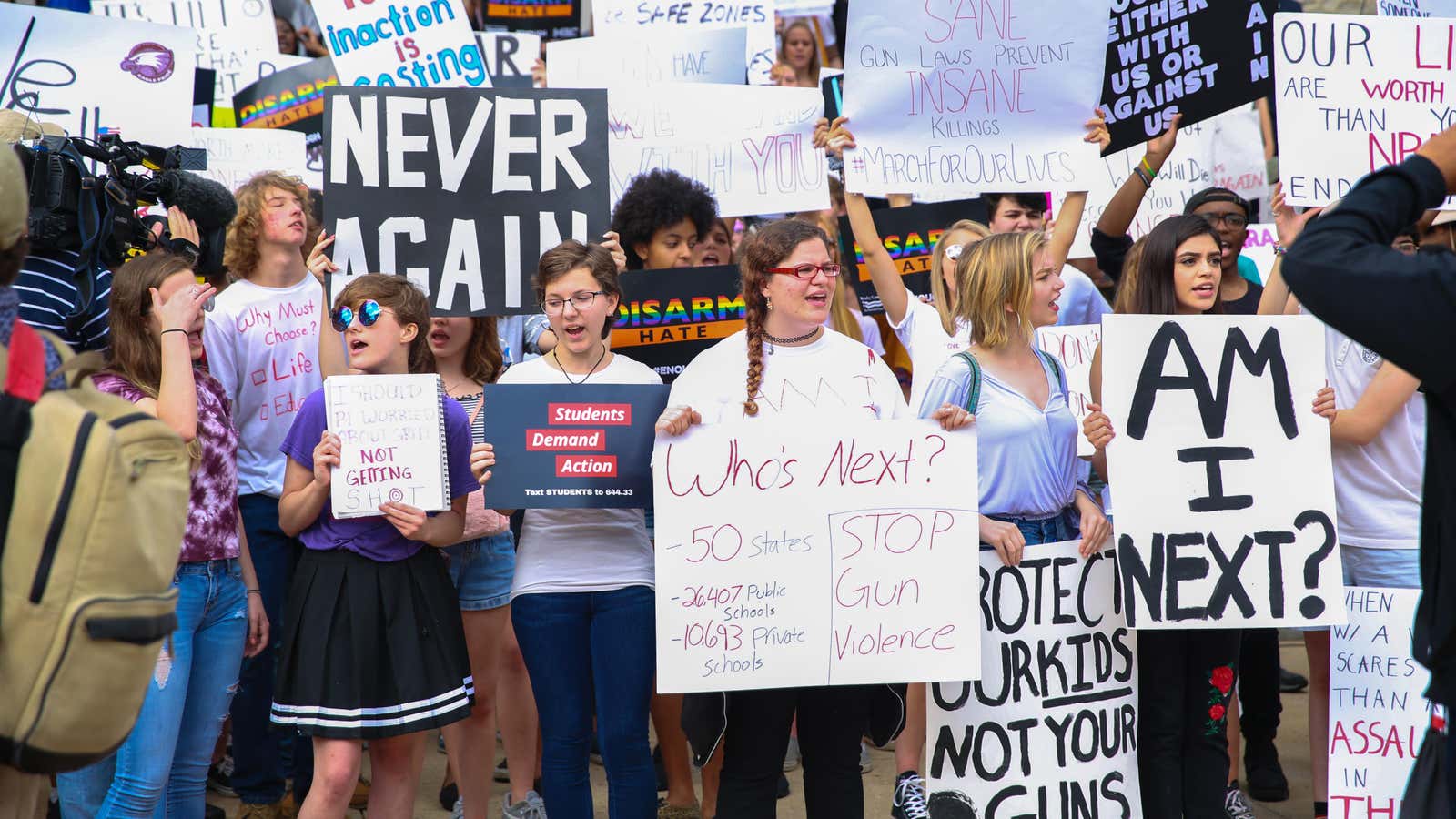How to Talk to Kids About School Shootings

If gun violence were as “unimaginable” or “unthinkable” in the United States as politicians’ tweets proclaim after another school shooting. Instead, we have experienced so many mass shootings – in schools, in grocery stores, in churches, and that’s just this week ; in 2022 we’re at a pace of more than one a day – it’s hard to feel anything but numb with dread. People are not destined to go through so much grief. So how do you explain to a child something that you yourself will never understand? All words are powerless, and yet your job as a parent is to find something to say.
It’s natural to feel helpless right now. But as we have told you before, it is possible to share the facts with our children and also reassure them that we and the other adults in their lives care about them and are doing everything we can to keep them safe. I spoke with parenting and school psychologist Rina B. Patel to learn how to talk to kids about school shootings. If you need a little guidance on how to build that complex conversation with your kids, this is the place to start.
Create a safe space to talk
Your child probably has questions and fears that they don’t have the words to describe, just like you do. Patel says you should let your child’s questions guide your discussion as you decide how much information you need to provide.
Watch for any signs that they may want to talk. “Some kids prefer to write, play music, or do art projects as a way of expressing themselves,” says Patel. In addition, she notes that young children may need specific activities (such as drawing, looking at picture books, or imagining) to help them identify and express their feelings.
Prepare for the question “why?”
To state the obvious: we don’t know “why” people do this. It’s okay to share this painful reality with your child. Some people do terrible, cruel things, and we don’t fully understand why. But, as psychologist Dr. Ellen Hendricksen writes , it’s important to tell a child that there are far more good people in the world than bad people. If you can’t give your child a satisfactory answer to the “why” question, remind him of what you know: you will always do your best to keep him safe.
Check out the security protocols
Clearly, your child’s school safety protocols now seem inadequate for a variety of reasons. But at this point, it’s important to move the conversation from the impossible ( why do bad people do bad things? ) to the tangible ( what position are you in during safety drills? ). Also, help your children find at least one adult in the school and community they can turn to if they feel threatened or at risk.
Limit media coverage of violent events
“Developmentally inappropriate information can cause anxiety or confusion, especially in young children,” says Patel. “Adults should also be mindful of the content of the conversations they have with each other in the presence of children, even adolescents, and limit their exposure.”
This means taking care of yourself too. Here are some additional tips for coping with life in constant crisis .
Maintain a consistent routine
Routine is soothing. Patel advises encouraging your child to keep up with school and extracurricular activities, but “don’t force him if he seems overwhelmed.” Otherwise, do your best to keep them getting plenty of sleep, being physically active, and eating a healthy diet.
Watch your emotions: your child and yours
Patel notes that changes in behavior, appetite, and sleep patterns can also indicate a child’s level of anxiety or discomfort. For most children, these symptoms improve with time and reassurance. Seek help from a mental health professional if you are at all concerned.
Children remember actions more than words, so watch your emotions as well. “In general, kids will feel more secure when parents act calm and positive,” Sarah Keith Bearman , an assistant professor of educational psychology at the University of Texas at Austin, told us at the start of the pandemic .
Be kind to yourself
All of the points in this guide apply to both you and your child. I would like this conversation to be unimaginable; instead, this country made it inevitable. Be kind to yourself when you grieve and try to understand this deep loss.
Reena B. Patel (LEP, BCBA) is a renowned parent and school psychologist, certified behavioral analyst, and author of Winnie and Her Concerns .